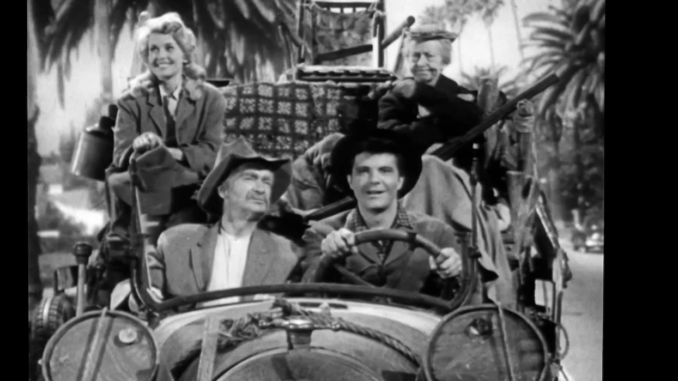
Turning a beloved TV series into a modern movie is one of Hollywood’s trickiest plays. For The Beverly Hillbillies, the attempt to translate the Clampetts’ comic world to the big screen became a cautionary tale about nostalgia, tone, and audience expectation.
A hit sitcom thrives on familiarity: catchphrases, repeating set pieces, and an ensemble chemistry developed over years. Translating those elements into a two-hour film requires careful calibration. Too reverent, and the movie feels like a shot-for-shot retread for fans only. Too radical, and it risks alienating the core audience that remembers why they loved the characters in the first place.
The film version of The Beverly Hillbillies (made decades after the show’s television run) tried to bridge that divide by updating certain elements—casting contemporary stars, adding cinematic spectacle, and leaning into a broader satirical punch. But for many viewers and critics, something essential was lost. The sitcom’s charm had depended less on plot and more on the characters’ simple certainties and the ensemble’s familiar rhythms. Compressing that into a film’s arc often flattened the people who, on television, had been allowed to breathe and expand.

Another hurdle was expectation. Fans who grew up with the original series carry emotional attachments to specific performances. No matter how good a new actor might be, replacing a beloved portrayal invites scrutiny. The inevitable slide in tone—looking to make jokes feel “edgier” for modern tastes—can strip the sweet core that originally made the characters endearing.
Moreover, timing and cultural context matter. A joke that landed in the 1960s because of a specific audience sensibility may not land the same way decades later. Reboots must either recontextualize jokes thoughtfully or risk coming off as tone-deaf. The film adaptation stumbled on that tightrope: homage and reinvention were not blended as harmoniously as audiences hoped.
Yet the failure is instructive. It shows the hazards of cinematic nostalgia and explains why some TV-to-film transitions succeed only when they respect the original’s spirit while honestly reimagining form and pace. Sometimes the best tribute is not a remake but a restoration—a careful reintroduction of the original material into modern distribution so new viewers can discover it on its own terms.
For The Beverly Hillbillies, the attempted movie was a reminder that some stories belong to the small screen’s episodic cadence. The Clampetts weren’t built for a single, compressive dramatic arc; they were designed to be visited weekly, an ongoing comic comfort. Hollywood’s reboot gambles on nostalgia, but the Clampetts’ lesson remains: you can’t force-feed comfort into a different shape without losing a taste of what made it comforting in the first place.